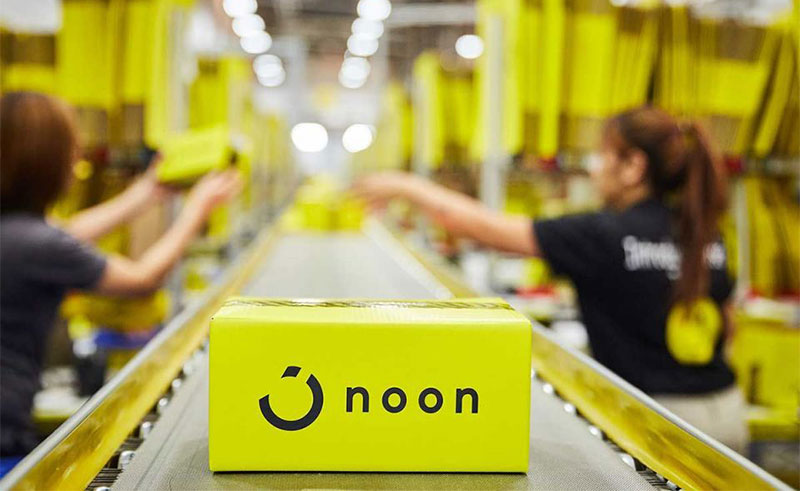Investing in Middle Eastern Startups: Unlocking Outstanding Growth Potential
Estimated reading time: 10 minutes
Key Points
- Investing in Middle Eastern startups is an attractive option with high growth potential due to economic and technological development.
- Supportive government policies and the growth of venture capital funds are strongly boosting the Dubai startup ecosystem and the entire region.
- Potential investment sectors include fintech (financial technology), e-commerce, health tech (health technology), and renewable energy.
- Effective investment strategies require thorough due diligence, networking, and a deep understanding of the market and local regulations.
- Investors need to identify and prepare for challenges such as cultural and legal differences, along with economic and political risks.
Table of Contents
- Why consider investing in Middle Eastern startups?
- Key sectors for investing in Middle Eastern startups
- Typical examples of successful startups
- Effective investment strategies for Middle Eastern startups
- Challenges and risks when investing
- How to start the investment journey?
- Conclusion: Seizing the opportunity
- Frequently Asked Questions
In the context of a constantly fluctuating global economy, investing in Middle Eastern startups is emerging as an increasingly attractive option for investors seeking to tap into the region’s strong growth potential. With impressive economic growth, remarkable technological advancements, and active government support policies, the Middle East is gradually asserting its position as a promising hub for innovation and entrepreneurship. The Dubai startup ecosystem in particular, and the entire region in general, are witnessing significant investments across diverse sectors, from fintech, e-commerce, and health tech to renewable energy.
This article will provide a comprehensive overview of investing in Middle Eastern startups. We will explore the reasons why this region is attracting investors, delve into key potential sectors, analyze successful startup examples, discuss effective investment strategies, identify potential challenges and risks, and provide detailed steps to begin your investment journey. Let’s discover the golden opportunities that the Middle Eastern startup market offers.
Why consider investing in Middle Eastern startups?
The Middle East region is undergoing a period of strong transformation with astonishing economic growth and technological progress. This rapid development not only attracts attention but also reinforces investor confidence in the market’s long-term potential. Governments in the region also play a key role in promoting the startup ecosystem by issuing supportive policies, funding initiatives, and business-friendly regulations. This creates a favorable environment for innovative ideas to flourish and develop.
A clear testament to the market’s appeal is the increase in successful exit deals and large-value funding rounds. For instance, Tabby, a fintech startup based in Saudi Arabia, became the region’s most valuable fintech startup after successfully raising $160 million in its Series E funding round in early 2025, bringing its valuation to $3.3 billion. This success not only affirms Tabby’s position but also serves as a positive signal of the immense potential of tech companies here. Furthermore, in 2024 alone, fintech startups in the Middle East and North Africa (MENA) raised over $700 million, accounting for 30% of the total investment capital for startups across the entire MENA region, according to data from Forbes Middle East. The increasing participation of venture capital funds in the UAE and neighboring countries also contributes to a vibrant and promising investment landscape.
Key sectors for investing in Middle Eastern startups
The Middle East is not a single market but a collection of diverse economies with their own strengths. When considering investing in Middle Eastern startups, identifying sectors with high growth potential is crucial. Here are some prominent industries currently attracting significant investor interest:
Financial Technology (Fintech): A Driver for the Digital Economy
Fintech continues to be one of the hottest and most heavily invested sectors in the Middle East. With a young, tech-savvy population and high smartphone penetration rates, the demand for digital financial solutions is constantly increasing. Fintech startups in the region are focusing on developing innovative payment solutions, peer-to-peer lending platforms, personal financial management tools, and digital banking services.

Companies like Tabby with its “buy now, pay later” (BNPL) model, or Rasan, an insurtech company also from Saudi Arabia, have achieved significant milestones, demonstrating their ability to meet the needs of a rapidly digitizing economy.
According to Forbes Middle East, fintech remains one of the hottest sectors, with companies like Tabby and Rasan continuously achieving significant milestones, focusing on payment solutions and flexible financial options.
The strong development of fintech not only improves user experience but also promotes financial inclusion, bringing financial services closer to those underserved by traditional banks.
E-commerce: The Online Shopping Boom
The online retail market in the Middle East is booming, driven by increasing internet penetration, changes in consumer behavior, and growing demand for convenient and diverse online shopping experiences. Countries like Saudi Arabia and the United Arab Emirates (UAE) are leading this trend, with the emergence of many strong e-commerce platforms constantly expanding their product and service portfolios to better serve local consumer tastes.
Startups in this field are not only focusing on retail sales but also developing logistics solutions, payment systems, and customer services to optimize the shopping experience. Platforms like Noon, an e-commerce “giant” based in Saudi Arabia, have been effectively meeting the diverse needs of the market, from electronics and fashion to food and household goods. Healthy competition among platforms also drives innovation and brings more benefits to consumers.

Health Tech: Enhancing Healthcare Quality
Health Tech is gradually asserting its important role in improving healthcare services and medical accessibility in the Middle East. The region is witnessing significant innovations in digital health, from health tracking applications and telemedicine platforms to hospital management solutions and electronic health records.
Qatar is a prime example of a nation investing heavily in digital health solutions to enhance the quality and efficiency of its healthcare system. Health Tech startups not only help people easily access high-quality medical services but also contribute to reducing the burden on traditional healthcare facilities, especially in the context of increasing public health challenges. The potential of Health Tech in the Middle East remains vast, promising breakthrough solutions for the medical industry.
Renewable Energy: Towards a Sustainable Future
Facing challenges of climate change and the need to diversify energy sources, the Middle East is making a strong shift towards sustainable energy solutions. Governments in the region have launched many initiatives and commitments to reduce carbon emissions and increase the use of clean energy sources. This opens up attractive investment opportunities in solar and wind energy projects, two sectors with outstanding development potential in a region abundant in sun and wind resources.
Startups in the renewable energy sector are focusing on developing efficient energy storage technologies, building large-scale solar and wind power plants, and providing smart energy solutions for households and businesses. Investing in renewable energy not only brings economic benefits but also contributes to the sustainable development goals of the region and the globe.

Typical examples of successful startups when investing in Middle Eastern startups
The success of startups is the clearest testament to an ecosystem’s potential. In the Middle East, many startups have been and are making strong impressions, attracting the attention of domestic and foreign investors.
Fintech: Ziina (UAE) – Simplifying Digital Payments
Ziina, a UAE-based financial technology company, is a prime example of the dynamic development of the fintech sector in the region. Focusing on providing seamless and user-friendly digital payment solutions, Ziina has quickly established its position in the market. Ziina’s success was recognized when the company made it to the Middle East’s Fintech 50 list for 2025 by Forbes Middle East. Ziina’s growth demonstrates the immense potential of mobile payment applications and e-wallets, meeting the increasing demand for cashless transactions among the population, especially the youth. Support from venture capital funds in the UAE also plays a crucial role in the development journey of startups like Ziina.
E-commerce: Noon (Saudi Arabia) – The Online Retail Giant
In the e-commerce sector, Noon has emerged as one of the leading platforms in Saudi Arabia and the Middle East region. With an incredibly diverse portfolio of products and services, ranging from electronics, fashion, and beauty to home goods and groceries, Noon has succeeded in catering to the tastes and preferences of local consumers. The strong growth of e-commerce platforms like Noon is driven by the country’s rapidly developing online shopping market. They not only offer products but also invest heavily in logistics infrastructure and user experience, creating a comprehensive online shopping ecosystem.

Health Tech: Innovations from Qatar
Qatar is emerging as a hub for health technology investment and development. The country is home to several promising health tech companies focusing on digital health solutions. Although specific company examples were not detailed in the initial research source, the region’s significant investment in healthcare technology is very noteworthy. These startups are striving to improve access to medical services, optimize hospital management processes, and apply artificial intelligence in diagnosis and treatment. The focus on medical innovation demonstrates Qatar’s commitment to enhancing the quality of life for its citizens and building a modern, sustainable healthcare system.

Effective investment strategies for Middle Eastern startups
Investing in Middle Eastern startups requires a cautious and strategic approach. This market offers many opportunities but also has its own unique characteristics that investors need to understand.
First and foremost, thorough due diligence and market research are indispensable steps. Investors need to conduct extensive research on a startup’s market position, financial situation, growth potential, founding team, and competitive advantages. A clear understanding of the economic, cultural, and legal context of each specific country in the region is also a key factor.
Secondly, networking with local entrepreneurs, industry leaders, and investment professionals is extremely important. These relationships not only provide deep market insights but also open up potential investment opportunities and valuable partnerships. Participating in startup events, conferences, and investment forums is an effective way to expand your network.
Thirdly, investors can choose from various investment methods. Options include direct investment in startups, participating in venture capital funds in the UAE or other countries in the region, or collaborating with incubators and startup accelerator programs. Each method has its own pros and cons, suiting different risk appetites and investment goals. For example, programs like the Founder Institute’s Middle East Startup Accelerator Program can be a good channel to access promising early-stage startups and receive community support.
Finally, a clear understanding of foreign investment regulations, corporate law, and intellectual property issues in each market is necessary to ensure a smooth and legally compliant investment process.
Challenges and risks when investing in Middle Eastern startups
Although the Middle Eastern startup market offers many attractive opportunities, investors also need to identify and be prepared to face potential challenges and risks.
One of the major challenges is the cultural and legal differences. A clear understanding of local customs, language, and business practices is very important for building relationships and operating effectively. Additionally, the legal framework and regulations can vary significantly between countries in the region, requiring investors to conduct thorough research and possibly seek advice from local legal experts.

Economic and political risks are also factors to consider. Although many Middle Eastern countries have stable and growing economies, the region can also be affected by global economic fluctuations or unexpected political changes. The dependence on oil prices of some economies can also create certain instabilities.
To mitigate these risks, investors should adopt strategies such as diversifying their investment portfolio across different sectors and countries within the region. Close collaboration with reputable and experienced local partners also helps navigate the market more effectively. Furthermore, maintaining a flexible approach and being ready to adjust strategies when necessary are also important factors for success.
How to start the investment journey in Middle Eastern startups?
Starting the journey of investing in Middle Eastern startups can be an exciting and promising process. Here are the basic steps to help investors, especially those new to exploring opportunities for tech startups in Arabia and neighboring markets, get started:
- Identify potential startups: Look for companies with strong growth potential, talented and dedicated founding teams, and innovative products or services that solve real market problems. Researching industry reports, following news on funding rounds, and attending startup events are good ways to discover opportunities.
- Conduct thorough Due Diligence: After identifying some potential startups, the next step is to conduct a detailed assessment of their financial situation, business model, market position, competitive advantages, and management team. Don’t hesitate to ask questions and request transparent information. Carefully analyze risk factors and long-term growth potential.
- Build partnerships and secure funding: Collaborating with local partners, such as angel investors, venture capital funds, or consultants, can provide valuable insights and necessary support. Explore funding options through venture capital firms, crowdfunding platforms, or government support programs.
- Understand legal and regulatory aspects: Before making any investment commitments, ensure you clearly understand the legal regulations related to foreign investment, business formation, and intellectual property protection in the target country.
- Start small and diversify: If you are new to the market, consider starting with smaller investments and diversifying your portfolio across multiple startups and sectors to mitigate risks.
Seeking advice from experts with investment experience in the Middle East is also a wise step, helping you make informed decisions and optimize your chances of success.
Conclusion: Seizing the opportunity from investing in Middle Eastern startups
In summary, investing in Middle Eastern startups offers an attractive opportunity for investors seeking outstanding growth in a dynamic and promising market. The region’s strong economic and technological development, along with supportive government policies and the rise of key sectors like fintech, e-commerce, health tech, and renewable energy, are creating an extremely favorable investment environment. The Dubai startup ecosystem, along with other hubs like Riyadh, is increasingly asserting its position on the global innovation map.
Although there are certain challenges and risks, understanding the market, applying smart investment strategies, and collaborating with local partners can help investors navigate effectively and achieve success. Venture capital funds in the UAE and across the region are actively seeking and injecting capital into breakthrough ideas, opening up more opportunities for tech startups in Arabia and neighboring countries.
We encourage investors to proactively explore the promising opportunities in the Middle East. As the region continues to develop and integrate deeply into the global economy, this is the ideal time to learn, connect, and invest. For more detailed and updated information on leading startup events, you can refer to reputable sources like StartupBlink or follow market analyses from publications like Arab News. Start your journey of discovery and investment in the future of the Middle East today!
Frequently Asked Questions
Question 1: Which sectors are most promising for startup investment in the Middle East?
Answer: Fintech, e-commerce, health tech, and renewable energy are prominent sectors with high growth potential in the Middle East, attracting significant investor interest.
Question 2: What are the main risks when investing in Middle Eastern startups?
Answer: Investors should be aware of challenges such as cultural and legal differences between countries, as well as potential risks from economic and political fluctuations in the region.
Question 3: How important is local networking for investing in this region?
Answer: Building a network with local entrepreneurs, industry leaders, and investment professionals is extremely important. This helps investors gain deep market insights and opens up valuable investment opportunities and partnerships.
Question 4: Are there specific government incentives for foreign investors in Middle Eastern startups?
Answer: Many governments in the Middle East have implemented supportive policies, funding initiatives, and created business-friendly legal environments to attract foreign investment into the startup ecosystem, especially in high-tech sectors.

